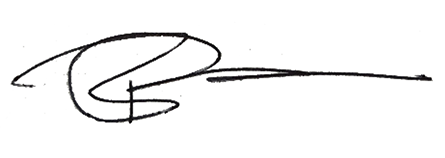Modern Slavery Statement
Benugo Anti-slavery And Human Trafficking Statement For Financial Year Ending 25th December 2024
Our business
Benugo Limited (‘Benugo’) is a restaurant, coffee and deli bar provider operating within public buildings, client premises and on the high street. Our focus is on showcasing fresh, seasonal and healthy food sourced locally whenever possible. We work with a large number of partners, stakeholders and suppliers and recognise that every entity in our supply chain has a duty to respect human rights.
Our position
At Benugo, we are clear about our responsibility to prevent slavery and human trafficking. Whilst we have a zero-tolerance approach to all forms of slavery both within our own operations and across our supply chain, we recognise the need to foster transparency within our supplier relationships to allow for greater collaboration and supportive action to be taken in the event of any issues being identified. We want everyone, whether they work within our business, or across our Supply Chain, to have greater awareness of the risks of modern slavery and to have faith that, if identified, we will deal with them responsibly.
Human Rights are extremely important to us and continued turbulence across the world only serves to raise the risk of Modern Slavery and the exploitation of people. Labour shortages, cost of living pressures and the continued mass migration of people as a result of conflict or climate change continue to present challenges for our clients, customers and colleagues as well as those domestic and international communities working across the supply chains serving our business. This statement outlines the steps we have taken to date, and continue to take, as a business to prevent slavery and human trafficking in our own operations and supply chains.
Our supply chain
We have an extensive Supply Chain of over 1,000 suppliers and are immensely proud of the role they play in enabling each of our operating locations to deliver outstanding levels of service and hospitality to meet our client and customer needs. Almost all our suppliers are based in the UK although we acknowledge that across the wide range of products and services they provide, a number of these will be sourced from both Europe and further afield for seasonality, availability and provenance reasons. Our supply chain is complex and varied and we deliberately operate a decentralised supply chain model, providing our teams with the choice and ability to select from approved suppliers as opposed to creating and forcing centrally determined supply chain solutions. Our supply chain is predicated on fresh and regional supplier networks but our Procurement & Supply Chain function is also responsible for the goods and services we need to run our business (GNFR – Goods and services not for resale) such as HR and professional services, technology, logistics and cleaning. Our supply chain remains incredibly diverse and provides a platform from which our businesses can grow, develop and continue to provide fantastic food and service.
Steps taken by Benugo to date
1. Governance
At Benugo, we recognise that strong governance is essential for identifying and driving out modern slavery in our business and across our supply chain, and that executive-level ownership and engagement on the issue of modern slavery is critical. Development and oversight of our Modern Slavery strategy sits with our Environmental, Social and Governance (“ESG”) Committee which meets on a quarterly basis reporting to the main WSH Board. The ESG Committee is chaired by a WSH board member and committee members lead a number of distinct action groups that focus on a wide range of areas including ethical and sustainable supply chain (“Progressive Partnerships”) as well as colleague welfare and wellbeing (“Inclusion by Design” and “Growing talent”). Action groups include representation from all Benugo businesses either through direct participation or consultation on targets and KPIs. Modern slavery continues to be a permanent agenda item for the ESG Committee as it continues to take responsibility for developing and overseeing our ethical approach in this area as a high priority.
2. Policies and contractual controls
Benugo remains committed to ensuring that its dealings with its own employees, and with its suppliers, are conducted ethically and responsibly. Benugo adheres to internationally recognised human rights principles and our policies are underpinned by our adherence to important internationally recognised standards including the UN Universal Declaration of Human Rights, core International Labour Organisation (ILO) standards, the Ethical Trading Initiative (ETI) Base Code and national and international laws. The following clauses guide us in how we protect and respect human rights across our operations:
a. employment is freely chosen;
b. freedom of association and the right to collective bargaining are respected;
c. working conditions are safe and hygienic;
d. child labour shall not be used;
e. living wages are paid;
f. working hours are not excessive;
g. no discrimination is practiced;
h. right to an effective remedy;
i. regular employment is provided; and
j. no harsh or inhumane treatment is allowed.
We expect suppliers to comply with our Modern Slavery policy, Supplier Code of Conduct and Whistleblowing policy as well as all applicable national laws in the countries in which they operate and all relevant ILO Conventions.
3. Our suppliers
Our procurement function is responsible for sourcing the goods and services that we need to run our business. Our supply chain is extensive and, even though our focus naturally lies in the food, beverage and people categories given the nature of our business, our standards and policies extend to all suppliers used across our operations and we have well established processes and policies in place to ensure that workers making and delivering the products and services we use or sell are treated responsibly.
Supplier on-boarding:
Any supplier wishing to work with our business will go through a detailed on-boarding process which requires them to agree and sign up to our general terms and conditions of trade, which include appropriate anti-slavery and human trafficking clauses. They are also required to agree and commit to full compliance with the following:
a) Our Modern slavery policy which sets out our standards in relation to ethical trading;
b) if eligible, confirm compliance with UK Modern Slavery Act and share their modern slavery statement;
c) the implementation of a due diligence process within their business to ensure there is no slavery and human trafficking in their supply chain (including in relation to personnel obtained via recruitment agencies); and
d) that any contracts with subcontractors and suppliers also include human trafficking provisions that meet our requirements.
The above requirements are reviewed and verified by our Supply Chain team prior to any supplier being set up to trade with our business. In addition to managing our requirements through the onboarding process, we also capture additional information through our supplier management portal where all eligible strategic supplier partners are required to complete a Self-Audit Questionnaire (SAQ) which formally records and captures the supplier’s key details, policies and third-party accreditation and certification. It is a requirement of our portal that these be refreshed and updated on an annual basis by the supplier for our Supply Chain Technical team to approve continued supply and adherence to our requirements and policies. We are committed to strengthening further our processes and controls around gathering key supplier information for us to increase visibility, identify risks and improve ethical practices across our supply chain.
Supplier auditing:
Our on-boarding process also enables us to determine which suppliers are most at risk of responsible sourcing challenges and, for those high-risk suppliers, we prioritise a site audit. The site audit allows us to understand more about what the supplier is really doing to protect their people and following this, we notify the supplier of any remedial action we believe is required. We monitor the update of SAQ’s closely to ensure no deterioration in a supplier’s status in complying with our Responsible and Ethical standards and requirements and continue to make strong progress with our SEDEX (Supplier Ethical Data Exchange) engagement work and self- assessment questionnaires.
Our approach to modern slavery continues to evolve as we strive to keep pace with the challenges of the changing external environment. In 2024 we focused our activities on the following areas:
Fig 1: 2024 Targets
Unseen update
Unseen is a UK charity that provides safehouses and support in the community for survivors of trafficking and modern slavery. They operate the UK Modern Slavery & Exploitation Helpline and work with individuals, communities, business, governments, other charities and statutory agencies to stamp out slavery for good. We have been an Unseen Business Hub member since 2023, enabling us to access a range of unique and bespoke services to aid us with tackling the risk of human exploitation, creating a culture of continuous improvement.



